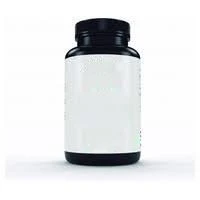Chitosan Powder Free Sample for Food, Pharma, and Cosmetics
The demand for natural, biocompatible materials has reached unprecedented levels across multiple industries, with chitosan powder emerging as one of the most versatile and promising solutions available today. As manufacturers and formulators seek sustainable alternatives to synthetic compounds, chitosan powder free sample programs have become essential for evaluating this remarkable biopolymer's potential in food preservation, pharmaceutical applications, and cosmetic formulations. The global chitosan market size was estimated at USD 13.00 billion in 2023 and is anticipated to reach USD 47.06 billion by 2030, growing at a CAGR of 20.3% from 2024 to 2030, highlighting the increasing recognition of chitosan's value across diverse applications. By offering comprehensive chitosan powder free sample programs, companies can now explore the unique properties of this natural polymer, including fungal chitosan powder variants that provide enhanced biocompatibility and sustainability credentials for modern manufacturing requirements.

Why Choose Chitosan Powder Free Samples for Your Industry Applications?
Understanding the Versatility of Fungal Chitosan Powder in Modern Manufacturing
Fungal chitosan powder represents a revolutionary advancement in natural polymer technology, offering manufacturers across food, pharmaceutical, and cosmetic industries access to a highly versatile raw material through comprehensive chitosan powder free sample programs. Unlike traditional chitosan derived from crustacean shells, fungal chitosan powder provides a vegan-friendly alternative that maintains all the beneficial properties while eliminating potential allergen concerns and religious dietary restrictions. The unique molecular structure of fungal chitosan allows for superior solubility characteristics and enhanced biocompatibility, making it particularly valuable for applications requiring precise control over release mechanisms and biological interactions. Manufacturing facilities utilizing chitosan powder free sample evaluation programs can thoroughly assess the material's performance in specific formulations before committing to large-scale production runs. The deacetylation degree of fungal chitosan powder can be precisely controlled during manufacturing, typically ranging from 90% to 98%, which directly influences the polymer's charge density, molecular weight, and subsequent functional properties. This level of customization ensures that each chitosan powder free sample can be tailored to meet specific application requirements, whether for antimicrobial food packaging, controlled drug delivery systems, or advanced cosmetic formulations.
Quality Assurance and Certification Standards for Chitosan Powder Free Sample Programs
Professional chitosan powder free sample distribution requires adherence to the highest international quality standards, ensuring that every sample accurately represents the full-scale production capabilities of the manufacturing facility. Comprehensive certification programs including ISO9001, ISO22000, HACCP, EU-ORGANIC, USA-ORGANIC, KOSHER, HALAL, SGS, and FDA registrations provide manufacturers with confidence that their chitosan powder free sample evaluation will translate directly to commercial-scale procurement decisions. The implementation of Good Manufacturing Practices throughout the production process ensures that fungal chitosan powder maintains consistent quality parameters including moisture content, particle size distribution, heavy metal contamination levels, and microbiological safety profiles. Advanced analytical testing methodologies verify the degree of deacetylation, molecular weight distribution, and functional group availability in each chitosan powder free sample batch. Quality control protocols encompass comprehensive documentation tracking from raw material sourcing through final packaging, providing complete traceability for regulatory compliance requirements. The integration of multiple international certification standards demonstrates a commitment to meeting diverse global market requirements, enabling seamless market entry across different regulatory jurisdictions. This comprehensive approach to quality assurance ensures that chitosan powder free sample programs provide accurate representation of commercial-scale material properties and performance characteristics.
Economic Benefits and Supply Chain Advantages of Chitosan Powder Free Sample Evaluation
Strategic evaluation through chitosan powder free sample programs provides significant economic advantages by enabling manufacturers to optimize formulation parameters before investing in bulk material procurement and production scaling. The availability of fungal chitosan powder samples with varying specifications allows for comprehensive cost-benefit analysis across different application scenarios, helping manufacturers identify the most economical grade for their specific requirements. Professional sample programs include technical support services that help optimize processing parameters, reducing development time and minimizing reformulation costs during the product development phase. Geographic advantages of sourcing chitosan powder free sample materials from established manufacturing regions provide access to abundant raw material supplies and developed logistics infrastructure, ensuring reliable long-term supply chain security. The production capacity exceeding 3,000 tons annually demonstrates the ability to support large-scale commercial requirements while maintaining competitive pricing structures. Bulk supply capabilities combined with flexible packaging options provide economies of scale that benefit both small-batch specialty applications and high-volume commercial production requirements. The integration of efficient logistics networks and international shipping partnerships ensures that chitosan powder free sample evaluation can proceed without delays, enabling faster time-to-market for new product developments across food, pharmaceutical, and cosmetic applications.
Applications and Benefits Across Food, Pharmaceutical, and Cosmetic Industries
Revolutionary Food Industry Applications Using Fungal Chitosan Powder
The food industry has embraced chitosan powder free sample evaluation as a pathway to developing innovative preservation systems and functional food ingredients that meet increasing consumer demands for natural, clean-label products. Fungal chitosan powder demonstrates exceptional antimicrobial properties against both gram-positive and gram-negative bacteria, making it an ideal candidate for natural food preservation applications that extend shelf life without compromising nutritional value or sensory characteristics. Food manufacturers utilizing chitosan powder free sample programs have successfully developed edible films and coatings that significantly reduce moisture loss, oxygen permeability, and microbial contamination in fresh produce, processed foods, and ready-to-eat meals. The pH-responsive nature of fungal chitosan enables the development of intelligent packaging systems that provide visual indicators of food freshness and safety, revolutionizing food safety monitoring throughout the supply chain. Advanced applications include the encapsulation of bioactive compounds such as vitamins, antioxidants, and probiotics, where chitosan powder free sample evaluation helps optimize release profiles and stability parameters. The biodegradable nature of fungal chitosan addresses growing environmental concerns associated with conventional plastic packaging, providing sustainable alternatives that decompose naturally without leaving harmful residues. Food safety regulations across different markets are increasingly favorable toward chitosan-based solutions, with many regulatory bodies recognizing the Generally Recognized as Safe (GRAS) status of properly processed chitosan materials for food contact applications.
Pharmaceutical Innovations Through Advanced Chitosan Powder Free Sample Research
Pharmaceutical applications represent one of the most rapidly expanding markets for chitosan powder free sample evaluation, driven by the material's unique combination of biocompatibility, biodegradability, and functional versatility in drug delivery systems. Fungal chitosan powder offers superior advantages in pharmaceutical formulations due to its consistent molecular weight distribution and absence of protein contaminants that could trigger immune responses in sensitive patient populations. Advanced drug delivery systems incorporating chitosan utilize the polymer's mucoadhesive properties to enhance bioavailability and extend residence time at target sites, particularly valuable for oral, nasal, and topical administration routes. The cationic nature of fungal chitosan enables electrostatic interactions with negatively charged biological membranes, facilitating controlled permeation enhancement and targeted drug delivery to specific tissues or cellular compartments. Chitosan powder free sample programs enable pharmaceutical researchers to evaluate different grades and specifications for specific therapeutic applications, including sustained-release tablets, nanoparticle formulations, and hydrogel systems for wound healing and tissue engineering. The hemostatic properties of chitosan make it particularly valuable for developing advanced wound care products that promote natural healing processes while providing antimicrobial protection. Regulatory pathways for chitosan-based pharmaceutical products continue to evolve favorably, with increasing acceptance of properly characterized chitosan materials in drug delivery applications across major pharmaceutical markets.
Cosmetic Industry Innovation Through Sustainable Chitosan Powder Free Sample Testing
The cosmetic industry's embrace of chitosan powder free sample evaluation reflects the growing consumer preference for natural, sustainable ingredients that deliver proven performance benefits without compromising environmental responsibility. Fungal chitosan powder provides exceptional film-forming properties that create protective barriers on skin and hair surfaces, offering long-lasting moisturization and conditioning effects that compete favorably with synthetic alternatives. Advanced cosmetic formulations utilizing chitosan benefit from the polymer's ability to bind moisture while maintaining skin breathability, creating comfortable, non-occlusive formulations suitable for sensitive skin types. The antimicrobial properties of fungal chitosan contribute to product preservation while providing additional skin benefits, reducing the need for synthetic preservatives that may cause irritation or sensitization in susceptible individuals. Chitosan powder free sample programs enable cosmetic formulators to evaluate different molecular weights and deacetylation degrees for specific applications, including anti-aging serums, hair care products, and color cosmetics. The rheology-modifying properties of chitosan allow for the development of innovative textures and sensory experiences in cosmetic products, from lightweight gels to rich creams that provide immediate and long-term skin benefits. Sustainability credentials associated with fungal chitosan production align with increasing consumer awareness of environmental impact, providing marketing advantages for brands committed to natural and eco-friendly product positioning.

Technical Specifications and Quality Control for Professional Chitosan Powder Free Sample Programs
Comprehensive Analysis of Fungal Chitosan Powder Characteristics and Performance Parameters
Professional chitosan powder free sample evaluation requires detailed understanding of the technical specifications that determine performance characteristics across different application scenarios. Fungal chitosan powder typically exhibits molecular weights ranging from 50,000 to 1,500,000 Daltons, with higher molecular weight variants providing enhanced mechanical properties and film-forming capabilities, while lower molecular weight options offer improved solubility and penetration characteristics. The degree of deacetylation, commonly available in 90%, 95%, and 98% specifications, directly influences the polymer's charge density, pH responsiveness, and biological activity, making careful selection crucial for optimizing performance in specific applications. Particle size distribution analysis reveals that properly processed fungal chitosan powder maintains uniform granulation between 80-120 mesh, ensuring consistent dissolution rates and mixing characteristics during formulation development. Advanced characterization techniques including infrared spectroscopy, nuclear magnetic resonance, and differential scanning calorimetry provide comprehensive verification of molecular structure and purity levels in each chitosan powder free sample batch. Moisture content specifications typically maintained below 10% ensure optimal storage stability and prevent microbial growth during extended storage periods. The absence of heavy metals including lead, mercury, cadmium, and arsenic below detection limits demonstrates the superior quality standards maintained throughout the production process for fungal chitosan powder.
Manufacturing Process Excellence and Contamination Control Protocols
State-of-the-art manufacturing facilities producing chitosan powder free sample materials implement comprehensive contamination control protocols that ensure product purity and consistency throughout the production cycle. The extraction and purification of fungal chitosan involves carefully controlled deacetylation processes that remove acetyl groups while preserving the polymer backbone integrity, resulting in consistent molecular weight distributions and functional properties. Advanced filtration systems including ultrafiltration and reverse osmosis remove potential contaminants and ensure that fungal chitosan powder meets pharmaceutical-grade purity standards suitable for the most demanding applications. Environmental monitoring programs continuously assess air quality, water purity, and surface cleanliness within production areas to prevent cross-contamination and maintain sterile processing conditions. Personnel training protocols ensure that all manufacturing staff understand contamination control procedures and maintain appropriate hygiene standards throughout the production process. Temperature and humidity control systems maintain optimal processing conditions that preserve the structural integrity and functional properties of fungal chitosan during extraction, purification, and drying operations. Comprehensive batch records document all processing parameters, quality control results, and testing data for each chitosan powder free sample lot, providing complete traceability and enabling rapid identification of any quality variations.
Advanced Testing Methodologies and Certificate of Analysis Documentation
Rigorous testing protocols ensure that every chitosan powder free sample accurately represents the quality and performance characteristics that customers can expect from commercial-scale orders. Comprehensive analytical testing includes determination of degree of deacetylation using titration and infrared spectroscopy methods, providing precise measurement of the functional group availability that determines biological activity and performance characteristics. Molecular weight determination through gel permeation chromatography or viscometry provides critical information about polymer chain length and its influence on mechanical properties, solubility, and biological interactions. Microbiological testing protocols verify the absence of pathogenic organisms and ensure that total viable counts remain within acceptable limits for food, pharmaceutical, and cosmetic applications. Heavy metal analysis using inductively coupled plasma mass spectrometry confirms that lead, mercury, cadmium, and arsenic levels remain below regulatory limits for all intended applications. Endotoxin testing ensures that fungal chitosan powder meets strict pyrogenicity requirements for pharmaceutical and biomedical applications where patient safety is paramount. Certificate of analysis documentation provides comprehensive reporting of all test results, manufacturing conditions, and quality parameters, enabling customers to make informed decisions based on detailed technical information rather than generic product descriptions.
Conclusion
The strategic importance of chitosan powder free sample programs extends far beyond simple product evaluation, representing a comprehensive approach to developing sustainable, high-performance solutions across food, pharmaceutical, and cosmetic industries. Through professional sample evaluation processes, manufacturers gain access to detailed technical documentation, application guidance, and quality assurance protocols that ensure successful implementation of fungal chitosan powder in commercial applications. The exceptional growth trajectory of the global chitosan market reflects increasing recognition of this natural polymer's unique properties and versatile applications across diverse industry sectors.
Shaanxi Pioneer Biotech Co., Ltd. stands uniquely positioned as a leading China chitosan powder free sample factory, leveraging strategic location advantages in the Qinling Mountains' "Medicine Herbs Valley" and comprehensive international certifications to deliver superior quality materials and exceptional service. As a trusted China chitosan powder free sample supplier and China chitosan powder free sample manufacturer, Pioneer Biotech offers competitive China chitosan powder free sample wholesale pricing and reliable chitosan powder free sample for sale programs that support global market development. Our commitment to high quality chitosan powder free sample standards and comprehensive technical support ensures successful project outcomes across all application areas. For detailed information about our chitosan powder free sample price and availability, contact our technical team at sales@pioneerbiotech.com to discuss your specific requirements and receive customized recommendations for your applications.
References
1. Kumar, S., Samal, S.K., Mohanty, S., and Nayak, S.K. "Recent Development of Biopolymer-Based Materials Used in Food Packaging Industry." Journal of Applied Polymer Science, vol. 132, no. 24, 2015.
2. Zhang, H., Alsarra, I.A., and Neau, S.H. "An In Vitro Evaluation of a Chitosan-Containing Multiparticulate System for Macromolecule Delivery to the Colon." International Journal of Pharmaceutics, vol. 239, no. 1-2, 2002.
3. Mourya, V.K. and Inamdar, N.N. "Chitosan-modifications and applications: Opportunities galore." Reactive and Functional Polymers, vol. 68, no. 6, 2008.
4. Rinaudo, M. "Chitin and chitosan: Properties and applications." Progress in Polymer Science, vol. 31, no. 7, 2006.



